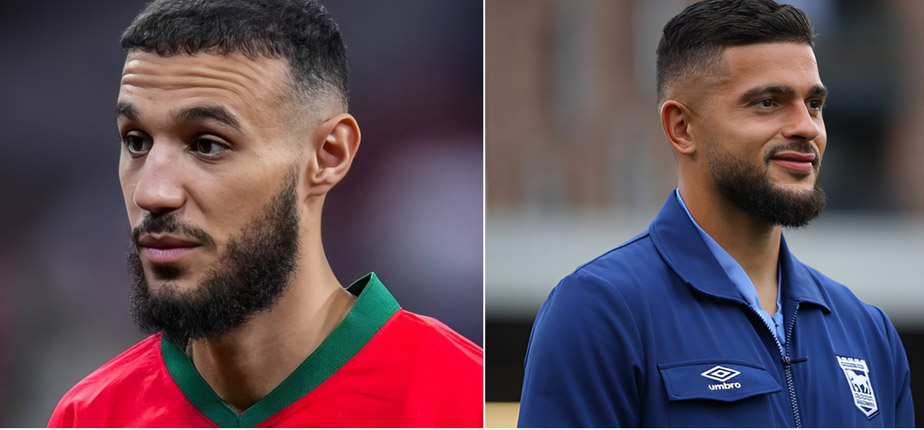
Nadine Osman
Several Muslim footballers, including Ipswich Town captain Sam Morsy and Manchester United defender Noussair Mazraoui, have sparked debates during the Premier League’s Rainbow Laces campaign due to their religious opposition to the LGBTQ+ initiative.
Morsy, a practising Muslim, opted out of wearing the rainbow captain’s armband during Ipswich’s match against Nottingham Forest on December 1 and again during their designated Rainbow Laces campaign match against Crystal Palace on December 3. Instead, he wore a standard captain’s armband, a move that did not violate any Premier League regulations. His decision has drawn mixed reactions, with Ipswich Town publicly supporting their captain while reaffirming their commitment to inclusivity.
In a statement, the club highlighted its pride in supporting the Rainbow Laces campaign, detailing initiatives such as LGBTQ+ football sessions and other equality-promoting activities. At the same time, the club expressed respect for Morsy’s personal stance, stating, “Ipswich Town Football Club is committed to being a fully inclusive club that welcomes everyone. We proudly support the Premier League’s Rainbow Laces campaign and stand with the LGBTQ+ community in promoting equality and acceptance. At the same time, we respect the decision of our captain Sam Morsy, who has chosen not to wear the rainbow captain’s armband, due to his religious beliefs.”
While the club’s response struck a conciliatory tone, Morsy faced criticism from some fans on social media who accused him of inconsistency, noting his previous willingness to wear shirts featuring betting sponsors despite Islam’s prohibition of gambling. Critics questioned why he could not extend similar empathy to LGBTQ+ individuals, with one fan remarking, “It’s sad Morsy can’t find the same empathy and support for another group of people oppressed throughout many parts of the globe.”
At Manchester United, the squad collectively decided against wearing Adidas pride-themed jackets ahead of their match against Everton on December 1 after defender Noussair Mazraoui, another practising Muslim, refused to participate. In previous seasons, United players have worn pride-themed jerseys during warm-ups and rainbow jackets to walk out onto the pitch during Rainbow Laces fixtures. This year, the club had planned only a walk-out jacket, but Mazraoui, a £15m summer signing from Bayern Munich, informed his team-mates he would not wear it due to his faith.
To prevent Mazraoui from being singled out, the team collectively decided not to wear the jackets, a decision made just hours before the match. While the gesture aimed to demonstrate solidarity within the squad, reports suggest not everyone in the dressing room was happy with the decision.
Meanwhile, Crystal Palace captain Marc Guehi attracted attention after inscribing “I love Jesus” on his rainbow captain’s armband during a match. While Guehi’s decision appeared to blend his religious beliefs with the campaign’s theme of inclusion, it breached FIFA and FA rules that prohibit political, religious, or personal statements on players’ equipment. The FA formally reminded Guehi and Crystal Palace of the regulations but refrained from issuing sanctions.
Last season, Sheffield United’s Anel Ahmedhodzic opted out of wearing rainbow armbands without providing a reason. On the continent, Feyenoord’s Orkun Kökçü and PSG’s Idrissa Gueye, both Muslims, also declined to participate in similar initiatives, citing religious grounds. Both players faced significant criticism for their decisions, which were seen by some as a refusal to support LGBTQ+ inclusivity.
Photo: Manchester United defender Noussair Mazraoui and Ipswich Town captain Sam Morsy both referenced their Islamic faith as the reason for their decision not to participate in the Premier League’s Rainbow Laces LGBTQ+ campaign. (Credit WikiCommons)